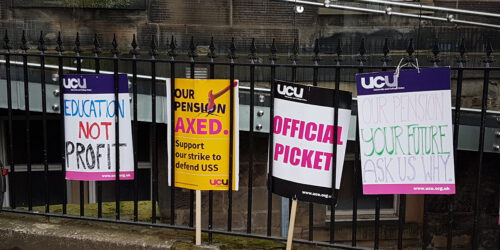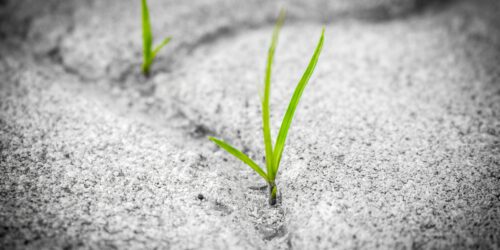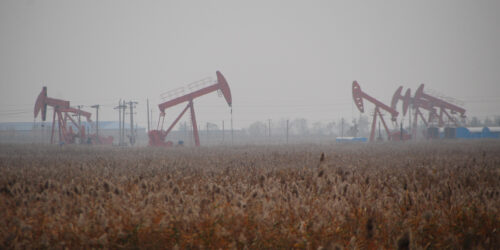On Academic Work and Sustaining People

This post by Rohini Patel is part of a series on Sustainable Academia—in cooperation with the Next Generation Action Team (NEXTGATe) of the European Society for Environmental History—in which contributors reflect on the conditions of historians in Europe and beyond (especially those in early career stages), introduce visions for the field, and suggest concrete action in order to build more inclusive and supportive academic environments.
In this post I want to think about a “sustainable” academia in two ways. First, what kind of academic work is needed for sustainable futures to be realized? And second, what needs to be done to sustain early career academics? I write and research in Toronto, the traditional land of the Anishnabeg, Wendat, Chippewa, Haudenosaunee, and Mississaugas of the Credit peoples. My graduate school experiences have been in the United Kingdom and Canada, and these inform my views of academia.
Academic work for sustainable futures:
Many people in this series have already written about some of the practices that historians and academics can undertake and alter in light of the pandemic; practices that reduce individual “carbon footprints” like travel or form new collective practices like increased archival digitization. These material considerations are significant and contribute to important conversations about how people conduct academic work in climate crisis. Expanding on actionable practices, how can historians working on, and thinking through environments (not only those who are titled environmental historians), mobilize their work to inform praxis that counters climate destruction?
Scholars studying environmental history, geography, political ecology, environmental humanities, and related thought work with continual awareness of the interrelatedness of material realities, and their specificities to historical, place-based, and socioeconomic and cultural contexts. What if more historians foregrounded these continuations of past and present at the level of the classroom, public facing forums, or community and social spaces? These spaces are instrumental to lasting sustainable change.
A sustainable academia could harness its resources and mandate of knowledge production to participate in these important sites of transformation. What if teaching students well and thoroughly was prioritized equally with, or more than, research publications? Or if community engagement was not considered just an add-on to a resume, but an integral part of research and teaching work? What might more distributed knowledge of socio-ecological pasts do for people trying to contend with the compendium of crises we face at this historical moment? How might engaged pedagogies with the world work to build a present – and futures – that we can collectively sustain? How might we think with and through history to understand the conditions of change under empire, capitalism, and militarism, and their often-unencumbered expansions, in order to understand how responses today must occur? Might we offer historical, conceptual, and critical tools to equip ourselves in efforts, small and large, in standing against the status quo, and pursuing more connected, relational, and vitalizing forms of living?
This kind of work can offer correctives to the ahistorical distorted messages, narratives, and propaganda pushed by corporations, media, and governments that continue to justify dominant socioecological formations. Arming people with the awareness of the world as always having been socially and ecologically interconnected, scholars can begin to offer avenues to defuse and challenge, or work against and beyond, dominant ideologies that maintain social and ecological separation and degradation. Even the imagined division of humans and environments were historical, the consequences of specific positivist ideologies of the world as a desacralized, inert place to be used and exploited under modern empires. And, the word “sustainability” itself has been engulfed, coopted, and manipulated by institutions and people that enact anything but sustainable worlds. Every oil and gas corporation and the banks that finance them, and even the militaries that secure them, have statements and purported commitments to sustainability. Under neoliberalism, this amounts to sustaining the status quo, with the moral righteousness of “greening” capitalism and imperialism. Training people to see through such deception, justifications, and generating greater historical consciousness is a way of producing sustainable futures.
Sustaining academics:
In terms of the “early career” academics – or rather, anyone without job security in the academy – a sustainable academia would look like a place that pays attention to the lives being lived by the people who make it. That is, it would be premised on sustaining peoples in community, collaborative thinking, and creation, where knowledge, relationships, and ideas can flourish. Beyond the neoliberal and capitalist university, sustainable academia would value people for their capacities and needs in order to research and teach well. The precarity of academic labour is at least increasingly recognized. The priorities of the academy could reflect the priorities of people who engage with intellectual, community, social, and other work beyond publishing and hegemonic markers of academic productivity in North America and Europe.
A sustainable academia would make room for human needs for rest, connection, cooperation, and continual learning, as opposed to status-driven, individualized, competitive, and isolated knowledge production. And it would make room for human experiences as people move through academic work, including its joys like celebration and milestones, responsibilities like caregiving, community work, and the work of sustaining everyday livelihoods, as well as its personal and collective sorrows like grief, illness, and loss.
In academia, the poor mental health of graduate researchers is normalized, to the point where it is almost considered a given, and one has to simply have the “tenacity” or “resilience” to withstand it. This condition is exacerbated by one’s positionality by class, gender, race, sexuality, citizenship, disability, and other important factors. As such, graduate students fall through the cracks at every given turn. The academy can celebrate diversity and inclusion on the one hand, and be totally ignorant on the other hand to the fact that a grad student’s family might live in a place hit particularly hard by ecological crisis, whether COVID-19 or a brutal storm or heat wave, and its compounded socioeconomic factors and fallout. And, the student would still, in most cases, be the one responsible for continuing through their studies within the allotted timelines, as if they were unaffected. A sustainable academia would not maintain such apathetic treatment and in turn impose the necessity for its members to be infinitely resilient, nor would it tolerate harmful treatment such as degrading behaviours, or repeatedly questioning the competency of select students.
A sustainable academia would be a place where appreciation, encouragement, and cultivating people’s skills in research, writing, and teaching would not be so hard to come by, only reserved for a select few people or momentous occasions like a thesis defense. Rather, these elements would be a shared part of building a place with the more and less experienced working together. Perhaps a more sustainable, and sustaining, university environment would recognize that dogged productivity at the expense of health, valuable relationships, and a sense of safety does a disservice to the need for deliberation in intellectual work. If anything, students and academics need room to not only learn – which can be challenging in the intake of novel, unfamiliar concepts, histories, or ideas – but also to unlearn – which is demanding in the cognitive ruptures it asks us to tolerate, and the welcoming of the spaces of unknowing and malleability that sit in between the transitions to alternative views.
Sustainable research and educational institutions:
If all of this sounds quite naïve, that’s because many of us have become so adjusted to a noxious institution. What exactly is it that we want to sustain, or uphold, about academia, anyway? To make a “sustainable academia,” and a place that sustains academics, would be a remaking of the university in several radical ways. If anything, this means a critical part of building new academic spaces will be rejecting practices, spaces, and logics of the colonial, neoliberal, and capitalist university.
A place that sustains people is a place that enlivens people, and a place that allows room for collaboration, continual learning, and thinking together. And it is a place where people are sustained to build vital futures together.





